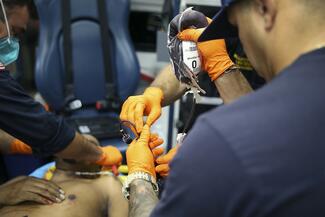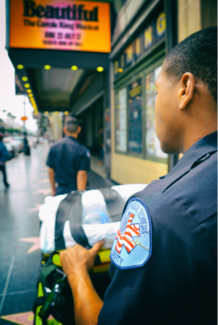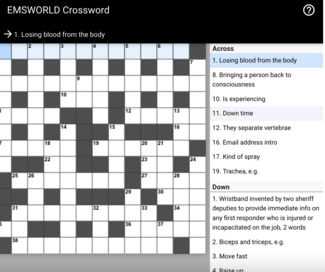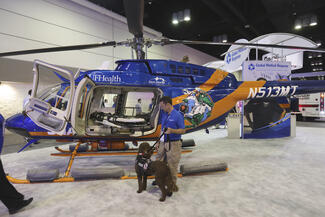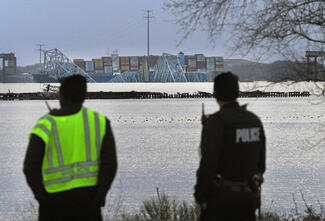April `07 Take-Home Points
This month, EMS Magazine introduces a new feature. Take-Home Points joins two top-notch EMS resources: the print edition of the magazine you're presently perusing and its associated website, www.EMSResponder.com. Each month, we have more interesting and important information to share than our limited number of print pages allows. Some of that extra content ends up on EMSResponder (complementing the site's excellent original reporting and news-gathering). In Take-Home Points, we will offer brief summaries of some of those stories, with key information distilled for your quick consumption and immediate use. We encourage readers to digest these appetizers, then log on to EMSResponder.com/onlineexclusives and read the full articles in their entirety. Because EMS just doesn't stop after that last page.
Are You Safe Haven-Compliant?
An abandoned baby is left on your station's doorstep--what do you do? Do you have your official guidelines to consult?
Overwhelmed new mothers have been known to abandon their newborn infants--in some cases, even leaving them to die. In response, Florida passed a "Safe Haven" law that designates places like fire and EMS stations and hospitals as locations where such newborns can be safely left. But that requires more of emergency providers than simply passing a baby along to authorities. The Gloria M. Silverio Foundation's "A Safe Haven for Newborns" project is intended to provide information, resources and physical resources, including signs, needed by such entities to better assist abandoned babies. Oviedo fire chief Lars White outlines the importance of the program and discusses resources the Silverio Foundation can offer.
Visit www.EMSResponder.com/onlineexclusives to read more.
Conference Medicine for Teens: Health and Safety at the World Leadership Congress
Dealing with kids is challenging even for experienced EMS providers. Now multiply that by 400.
Jody W. Carter, BS, NREMT-P, was part of the medic team that supported the Hugh O'Brian Youth Leadership program's World Leadership Congress, which brought 400 high school sophomores from around the world to the Washington, DC, area last summer. Carter's team saw them through an array of medical problems, heat-related and otherwise, and learned some valuable lessons along the way. To wit:
- Medications from other countries aren't the same as those from America. Some students had prescription bottles with instructions in languages other than English.
- Students from some countries weren't familiar with Gatorade and were reluctant to drink it, even in extreme heat.
- Some presentations are misleading. One girl thought to be having asthma attacks was really experiencing seizures.
- In addition to medication allergies, conference participants should be asked about known adverse reactions to medications when they register.
- In online registration systems, always fill in the "medications" field, even if only to say "none."
Carter and Co. also developed some best practices for similar gatherings. These include:
- Students' medical histories and insurance information were stored electronically and easily transferred. A staffer was available at all times to access it.
- A member of the medic team remained on-call every night, while the others slept. Students were never without care, but caregivers stayed refreshed.
- Students were broken into groups, with group leaders assigned to make sure each student consumed powdered Gatorade to combat the heat.
Despite the heat and other difficulties, there were no major medical problems during the Congress.
Visit www.EMSResponder.com/onlineexclusives to read more.






